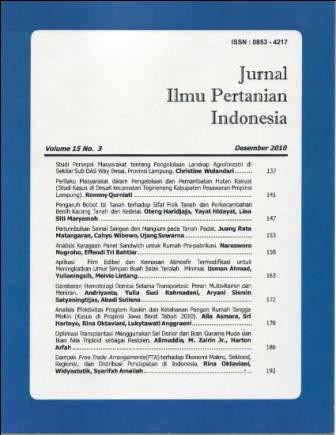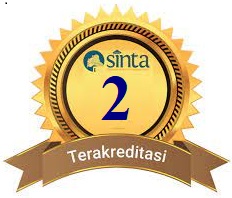Dampak free trade arrangements (FTA) terhadap ekonomi makro, sektoral, regional, dan distribusi pendapatan di Indonesia
Abstract
Indonesia's commitment to be involved in the scheme of Free Trade Agreement (FTA) is expected to bring a multiplier effect for the Indonesian economy, including sectoral, regional, and household distributional impact. The study was conducted using recursive dynamic Computable General Equilibrium Model (CGE) with further extension on top-down regional features. In the short term, the impact of the FTA has not seemed to significantly increase the national and regional GOP of each province. Trade liberalization scheme could potentially reduce the real income of households, the largest decline in low-income households in rural areas. Increased household income disparities need to be accounted with a serious community empowerment program to avoid social and economic conflicts. Increased competitiveness on regional and sectoral level is necessary. Improvement on market access is mandatory for several advantageous commodities. By increasing competitiveness, quality of infrastructures, and access to export markets, the export performance can be
improved. From the internal side, an efficient supply chain management is also crucial to meet the desires of consumers with quality, time, price and the right amount.
Downloads
References
Bettamura. 2010. Analisis faktor-faktor yang Mempengaruhi Output Industri Coklat di Indonesia. Skripsi. Departemen Ilmu Ekonomi, Fakultas Ekonomi dan Manajemen, IPB.
Hady, H. 2001. Ekonomi Internasional : Teori dan Kebijakan Perdagangan Internasional. Buku Kesatu. Ghalia Indonesia. Jakarta.
Horridge, J., Parmenter, B.R. and Pearson, K.R. 1993, "ORANI-F: a general equilibrium model of the Australian economy", Economic and Financial Computing 3: 71-140.
Horridge, M., Madden, J. and Wittwer, G. 2005. Using a Highly Disaggregated Multi-regional Single-Country Model to Analyse the Impacts of the 2002-03 Drought on Australia. Journal of Policy Modelling 27(3):285-308, May 2005
Oktaviani, R. 2000. The Impact of APEC Trade Liberalisation on Indonesian Economy and Agricultural Sector. Unpublished PhD thesis, Department of Agricultural Eco¬nomics, The University of Sydney.
Stephenson, S. M. 1994. The Uruguay Round and Its Benefit to Indonesia. Ministry of Trade, Republic of Indonesia, Jakarta.
Sumedi. 2005. Dampak Kebijakan Desentralisasi Fiskal terhadap Kesenjangan antar Daerah dan Kinerja Perekonomian Nasional dan Daerah. Program Studi Ekonomi Pertanian, Fakultas Pascasarjana, Institut Pertanian Bogor, Bogor.
Wittwer, G. 1999. WAYANG: A General Equilibrium Model Adapted for the Indo¬nesian Economy. Centre for International Economics Studies and School of Economics, University of Adelaide, Australia.
Widyastutik. 1995. Mungkinkan Indonesia Mencapai Swasembada Gula secara Berkelanjutan? Thesis. Program Studi Ilmu Ekonomi Pertanian, IPB, Bogor.
Widyastutik, O., R., Asmara, A. Irawan, T. 2009. Analisis Faktor-Faktor yang Mempengaruhi Realisasi Investasi Sektor Pertanian di Indonesia. Hibah Bersaing 2009. DIKTI, Jakarta.
This journal is published under the terms of the Creative Commons Attribution-NonCommercial 4.0 International License. Authors who publish with this journal agree to the following terms: Authors retain copyright and grant the journal right of first publication with the work simultaneously licensed under a Creative Commons Attribution-NonCommercial 4.0 International License. Attribution — You must give appropriate credit, provide a link to the license, and indicate if changes were made. You may do so in any reasonable manner, but not in any way that suggests the licensor endorses you or your use. NonCommercial — You may not use the material for commercial purposes.



















